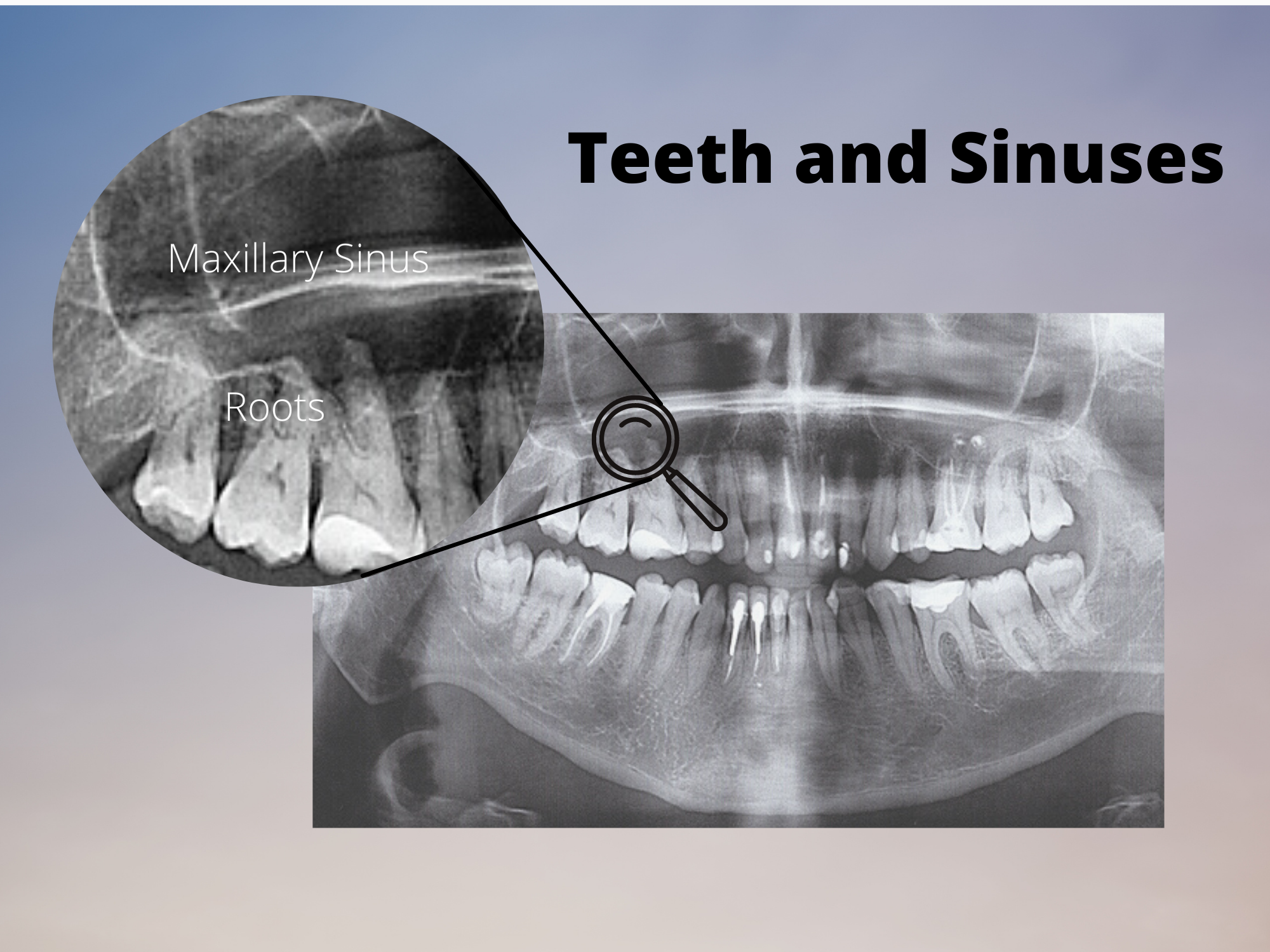Sinus Infections and Tooth Pain
Many of you may have experienced painful teeth while suffering from a sinus infection. Dentists frequently encounter this phenomenon. Because the roots of some teeth touch the floor of the maxillary (cheek) sinuses or even protrude into them, sinus infections can often cause the teeth to hurt, even though they have no pathology. 1 This post will discuss some of the unique aspects of the tooth-sinus connection.
The Sinus-tooth Connection
As you can see from the panoramic radiographic image below, the roots of some posterior teeth, chiefly the molars and premolars, abut the maxillary sinuses. The white line above the upper back teeth is the floor of the sinus and the dark circles that almost look like giant eyes, but are not, are the sinuses. Therefore, if the maxillary sinuses are infected, or irritated from allergies, those teeth abutting them can experience pain. Conversely, an infected tooth can cause a sinus infection due to its proximity to the sinus floor.
Notice below the upper back tooth on the right with the three white lines in the roots. That is a root canal filling. See how the one root towards the left has a dark shadow at the end. That is a tooth infection and it is in the sinus. You can see a closeup below.
See Your Dentist
You should see your dentist if you have a toothache because pain originating from a tooth (odontogenic pain) can overlap with sinus pain. However, achy teeth are very common with sinus infections, and 40% of sinus infections originate from infected teeth. 2 The bottom line is that just because you have a sinus infection doesn't mean you don't also have a problem tooth. Conversely, your sinus infection could be the result of an infected tooth.
The Signs and Symptoms of Sinusitis
The signs of sinus infections (sinusitis) are straightforward. The most common signs are facial pain, pressure, congestion, fullness, nasal obstruction, nasal or postnasal purulence or drip, diminished sense of smell, and fever. Secondary symptoms include headache, halitosis, fatigue, malaise, cough, and dental pain. 3
Tooth Pain and Sinusitis
When teeth are affected, The main symptom is achiness that worsens with postural changes. For instance, the teeth will become tender upon bending over to tie one's shoes—pain originating from teeth themselves usually does not cause this phenomenon.
Differential Diagnoses Should be Made by a Dentist or ENT
Pain relievers, decongestants, and saline sinus rinses help alleviate the sinus infection symptoms and, therefore, the dental symptoms. Pain originating from teeth often involves only one tooth, with sensitivity to cold or pressure being the most common symptom. If you have a specific tooth that is extremely sensitive to tapping on it or responds to heat with lingering pain, chances are you have an irreversible problem with the nerve within the tooth. Multiple achy teeth are typically caused by clenching, grinding, or habitual gum chewing and are similar to sinus-related tooth pain. Do not self-diagnose. The symptoms can be too similar for a nonprofessional to diagnose. If you have a sinus infection, a toothache, or both, you need to get a proper diagnosis from your ENT and dentist.






